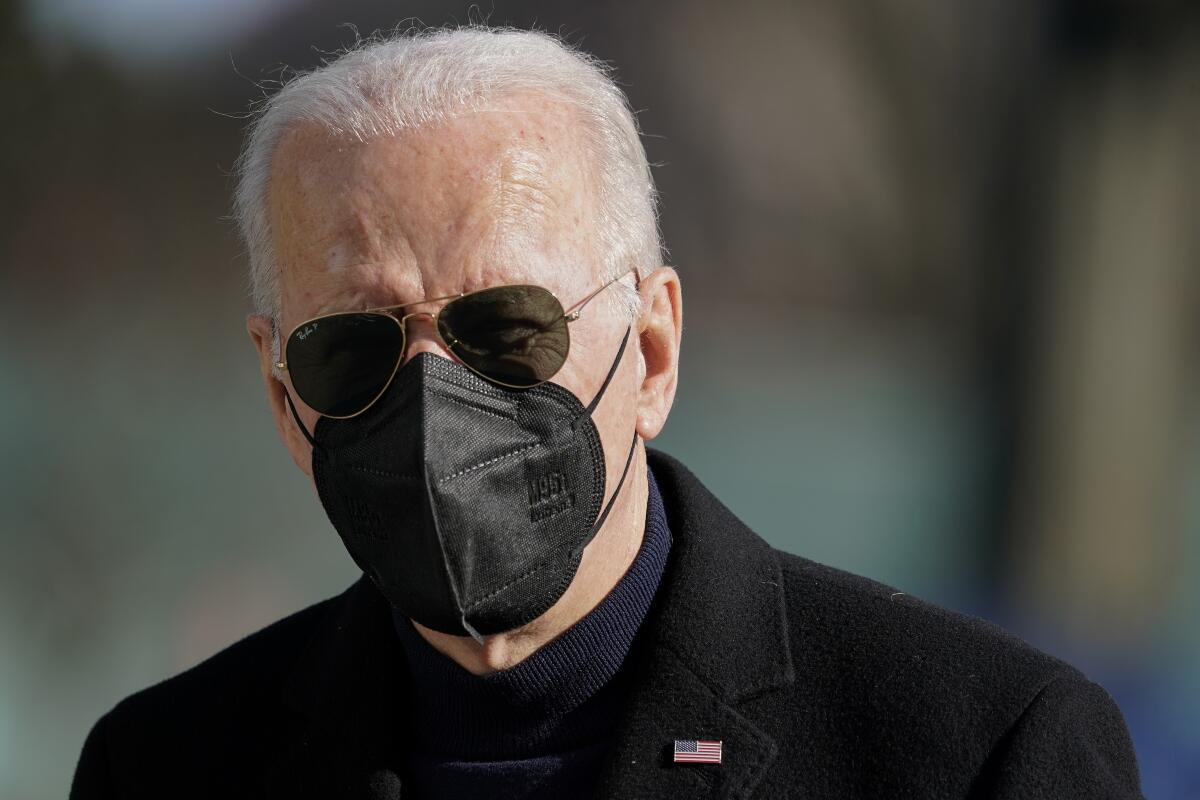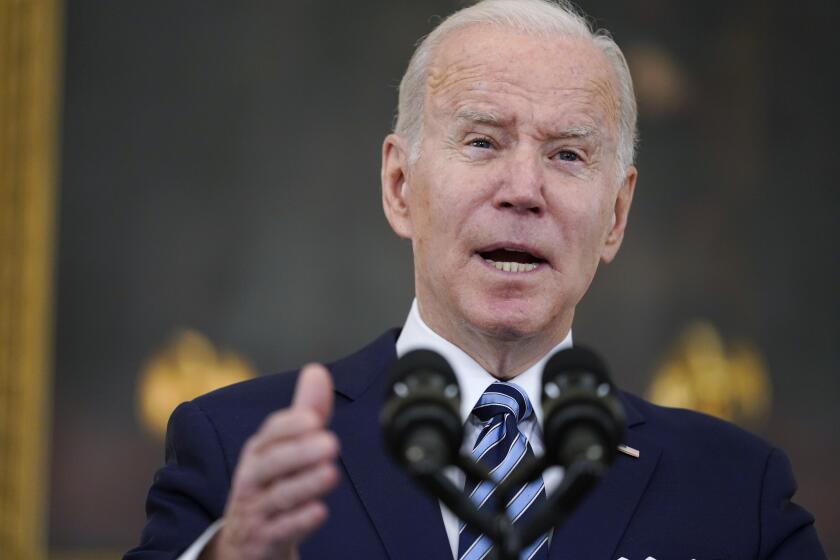Biden task force releases proposals to strengthen labor unions

- Share via
A Biden administration task force on organized labor on Monday issued a set of recommendations that could make it easier for federal workers and contractors to unionize.
The report submitted to President Biden included 70 distinct policy proposals, according to a release by the White House. Biden created the task force chaired by Vice President Kamala Harris, with Labor Secretary Marty Walsh as vice chair, through an executive order last April.
The report argues that a decades-long drop in union membership has coincided with a rising share of income going to the top 10% of earners. It further says that most Americans have a favorable impression of unions and would join one if given the option in a vote. Yet the Labor Department reported last month that only 10.3% of workers belonged to a union in 2021, down from 20.1% in 1983.
Many of the proposals to increase unionization are specific directions focused on the federal government as an employer. The Interior Department is among four agencies that will now let union organizers talk with employees on federal property, a rule that applies to private-sector employees on contract with the government.
The departments of Transportation and Commerce will set preferences and guidelines for federal grants to foster union jobs.
President Biden hailed Friday’s jobs report as good news for the economy. The Labor Department said 467,000 jobs were added in January.
There will be a ban on federal contract dollars going to anti-union activities by the Defense, Health and Human Services and Labor departments as well as the Office of Management and Budget.
Other proposals include efforts to improve workers’ awareness of their rights and to enforce existing labor laws. The task force plans to submit a follow-up report in six months to describe how agencies are implementing the policies and to issue new recommendations.
More to Read
Get the L.A. Times Politics newsletter
Deeply reported insights into legislation, politics and policy from Sacramento, Washington and beyond. In your inbox three times per week.
You may occasionally receive promotional content from the Los Angeles Times.











